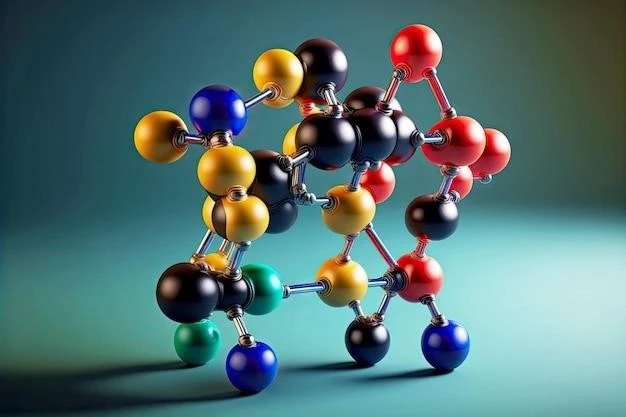- Genetic mutations affecting the AADC gene
- Deficiency in the enzyme responsible for neurotransmitter synthesis
Causes of Aromatic Amino Acid Decarboxylase Deficiency
Aromatic Amino Acid Decarboxylase Deficiency is primarily caused by genetic mutations affecting the AADC gene. These mutations result in a deficiency in the enzyme responsible for the synthesis of neurotransmitters like dopamine and serotonin, leading to the symptoms associated with the condition.
It is important to consult with a genetic counselor or a healthcare provider to understand the specific genetic factors contributing to this deficiency in order to manage the condition effectively.
Genetic testing can help in identifying the specific mutations and understanding the inheritance pattern, which can be crucial for family planning and genetic counseling. Environmental factors may also play a role in modulating the severity of symptoms in individuals with Aromatic Amino Acid Decarboxylase Deficiency, so it is essential to consider a holistic approach to management.
Symptoms of Aromatic Amino Acid Decarboxylase Deficiency
Individuals with Aromatic Amino Acid Decarboxylase Deficiency may experience a range of symptoms due to the reduced synthesis of neurotransmitters such as dopamine and serotonin. Common symptoms include⁚
- Muscle stiffness
- Involuntary movements
- Poor muscle tone
- Developmental delays
- Sleep disturbances
It’s essential to consult with a healthcare provider if you or your child exhibit these symptoms. Early recognition and management can help in improving quality of life and potentially slowing down disease progression. A multidisciplinary approach involving neurologists, geneticists, and therapists may be necessary for comprehensive care.
Understanding and addressing the symptoms early on can contribute to better outcomes and quality of life for individuals living with Aromatic Amino Acid Decarboxylase Deficiency. Regular monitoring and tailored interventions are key to managing the condition effectively.
Diagnosis of Aromatic Amino Acid Decarboxylase Deficiency
Diagnosing Aromatic Amino Acid Decarboxylase Deficiency involves various steps to confirm the condition accurately. Healthcare providers may utilize the following approaches⁚
- Genetic testing⁚ Identifying mutations in the AADC gene
- Neurotransmitter testing⁚ Analyzing levels of dopamine and serotonin in the cerebrospinal fluid
- Physical and neurological examinations⁚ Assessing symptoms like muscle stiffness and involuntary movements
- Developmental assessments⁚ Evaluating delays in motor or cognitive skills
It’s crucial to work closely with medical professionals experienced in diagnosing rare genetic disorders like Aromatic Amino Acid Decarboxylase Deficiency. Early and accurate diagnosis enables timely initiation of appropriate interventions and support services.
Timely diagnosis can also help in addressing potential comorbidities and ensuring personalized care for individuals with this condition. Regular follow-ups and monitoring are essential to track disease progression and adjust treatment plans when needed.
Treatment options for Aromatic Amino Acid Decarboxylase Deficiency
Managing Aromatic Amino Acid Decarboxylase Deficiency involves a comprehensive treatment approach tailored to the individual’s needs. Treatment options may include⁚
- Medications⁚ Dopamine agonists or serotonin precursors to supplement neurotransmitter levels
- Physical therapy⁚ Exercises to improve muscle tone and motor skills
- Speech therapy⁚ Enhancing communication abilities
- Occupational therapy⁚ Developing daily living skills
Surgical interventions or deep brain stimulation may be considered in severe cases to alleviate specific symptoms. It is essential for individuals with this condition to have a multidisciplinary care team comprising neurologists, therapists, and genetic counselors to ensure holistic support.
Regular follow-ups and adjustments to the treatment plan are vital to address evolving needs and optimize outcomes. Engaging in ongoing communication with healthcare providers can help in managing symptoms effectively and enhancing quality of life;
Prognosis of Aromatic Amino Acid Decarboxylase Deficiency
The prognosis of Aromatic Amino Acid Decarboxylase Deficiency can vary depending on the severity of symptoms, age at diagnosis, and the timeliness of interventions. Early detection and proactive management are key factors in determining the long-term outlook for individuals with this condition.
While there is no cure for Aromatic Amino Acid Decarboxylase Deficiency, ongoing advancements in treatment approaches and supportive therapies have shown promise in improving quality of life and managing symptoms effectively. Engaging in regular follow-up care and adhering to treatment plans can significantly impact prognosis.
It is important for individuals and caregivers to stay informed about the latest research and treatment options available for Aromatic Amino Acid Decarboxylase Deficiency; Maintaining a positive outlook, seeking guidance from healthcare professionals, and fostering a supportive environment can positively influence the overall prognosis and well-being of those affected by this condition.
Research updates on Aromatic Amino Acid Decarboxylase Deficiency
Ongoing research into Aromatic Amino Acid Decarboxylase Deficiency focuses on advancing our understanding of the condition, exploring new treatment modalities, and improving diagnostic methods. Recent developments include⁚
- Exploring gene therapy approaches to address genetic mutations
- Investigating the efficacy of novel medications in restoring neurotransmitter levels
- Enhancing early screening techniques for prompt diagnosis
- Studying the impact of personalized therapies on symptom management
Collaboration between researchers, clinicians, and patient advocacy groups plays a crucial role in driving progress in the field of Aromatic Amino Acid Decarboxylase Deficiency. Stay updated on the latest findings and clinical trials to access cutting-edge treatments and contribute to the advancement of knowledge in this rare disorder.
By supporting and participating in research initiatives, individuals and families affected by Aromatic Amino Acid Decarboxylase Deficiency can help shape future breakthroughs and improve outcomes for those living with the condition.
Aromatic Amino Acid Decarboxylase Deficiency in children
Aromatic Amino Acid Decarboxylase Deficiency in children presents unique challenges due to the impact of this rare genetic disorder on their physical and cognitive development. Early recognition and intervention are crucial in managing the condition in pediatric patients.
Children with Aromatic Amino Acid Decarboxylase Deficiency may exhibit symptoms such as developmental delays, muscle stiffness, and involuntary movements. It is essential for parents and caregivers to work closely with healthcare providers to create a tailored treatment plan that addresses the child’s specific needs.

Therapies such as physical therapy, speech therapy, and occupational therapy can play a significant role in improving motor skills, communication abilities, and overall quality of life for children with this condition. Additionally, genetic counseling can provide valuable information regarding the inheritance pattern and family planning considerations.
Empowering families with knowledge about managing Aromatic Amino Acid Decarboxylase Deficiency in children, fostering a supportive environment, and accessing specialized care are essential components in optimizing outcomes and ensuring the well-being of young patients.
Lifestyle management with Aromatic Amino Acid Decarboxylase Deficiency
Lifestyle management is essential for individuals with Aromatic Amino Acid Decarboxylase Deficiency to optimize their well-being and quality of life. Here are some key aspects to consider⁚
- Healthy diet⁚ Emphasize a balanced diet to support overall health and well-being.
- Regular exercise⁚ Adapt physical activities based on individual abilities and needs.
- Stress management⁚ Explore relaxation techniques and activities that promote emotional well-being.
- Social support⁚ Build a strong support network of family, friends, and healthcare providers.
- Stay informed⁚ Stay up-to-date on the latest research and treatment options.
It is important for individuals with Aromatic Amino Acid Decarboxylase Deficiency to work closely with their healthcare team to develop a personalized lifestyle plan that addresses their unique requirements. By proactively managing lifestyle factors and adopting healthy habits, individuals can enhance their overall quality of life and well-being while living with this condition.
